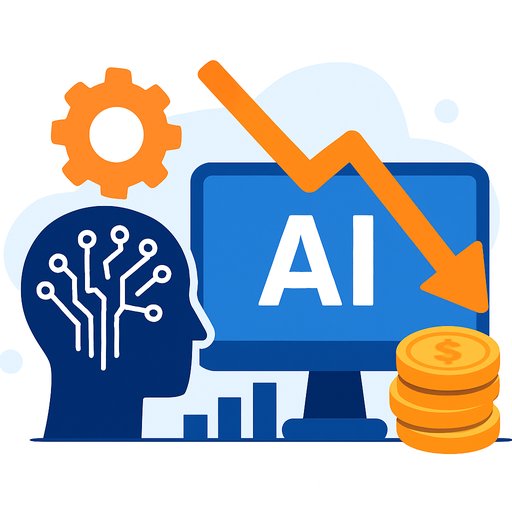Going All In: Microsoft's AI Gamble and What It Means for Managers
Microsoft is cutting staff while pouring billions into AI. Morale is dropping, anxiety is rising, and leadership is betting the company's future on a technology that could make parts of its own product line irrelevant.
At a recent employee town hall, CEO Satya Nadella said he's "haunted" by the story of Digital Equipment Corporation (DEC) - a cautionary tale of a once-dominant company that missed a shift and vanished. It wasn't a history lesson. It was a warning.
What's Really Happening
- Headcount is down, AI spend is up. Microsoft has earmarked roughly $80B for AI data centers and infrastructure.
- Leadership pressure is intense. Nadella is signaling a willingness to sunset legacy categories if AI makes them redundant.
- Competitive noise is growing. Public shots (like "Macrohard") frame a narrative: software firms themselves could be simulated by AI.
- Partnership risk is real. The Microsoft-OpenAI relationship is critical and complex, with a new non-binding MoU and surging compute needs.
Why Leaders Should Care
This is more than Big Tech drama. It's a live case study in strategic focus, capital allocation, and change management under uncertainty. The lesson: defend less, build more. Cling to legacy categories and you risk becoming the next DEC.
If a company with Microsoft's resources is willing to cannibalize its past to secure its future, your org should be asking the same questions - on a smaller, faster cycle.
The DEC Lesson (and How to Apply It)
DEC didn't fail because it lacked talent. It failed because it bet on the past while the market moved. Read the pattern once, then design against it: speed of decision-making, clarity of priorities, and the courage to retire what no longer compounds.
Context on DEC for those who need a refresher: Digital Equipment Corporation.
Playbook: What to Do Now
- Run a product obituary exercise. If AI made your top offering irrelevant tomorrow, what would you build instead? Write it down. Fund a pilot.
- Rebalance budget to offense. Shift a defined percentage from legacy maintenance to AI-driven experiments tied to revenue or cost savings.
- Set kill criteria. For every AI initiative, define time-boxed milestones and clear shutdown rules. Avoid zombie projects.
- Manage morale with transparency. If you're cutting, explain the strategy, the timeline, and what's protected. Silence breeds fear and churn.
- Reduce single-partner risk. If your AI stack hinges on one vendor, add a second path. Plan for price spikes, throttling, or policy shifts.
- Retrain to retain. Move high performers from legacy products into AI roles with structured upskilling. It's cheaper than constant rehiring.
- Define AI ROI like a CFO. Track unit economics: cost per inference, gross margin impact, and time-to-value. No vanity metrics.
- Stress-test infrastructure bets. If capex isn't your route, model opex-heavy options with strict usage guardrails and caching strategies.
Signals to Watch
- Cost curves: Are model costs per user session trending down enough to support your pricing?
- Adoption quality: Are users replacing workflows, or just testing features once and bouncing?
- Cannibalization: Are AI features eating legacy revenue in a way that still improves lifetime value?
- Vendor dynamics: Any signs of quota limits, policy shifts, or contract delays with key partners?
Bottom Line
Nadella's message is blunt: don't worship legacy categories. Build what the market wants next, not what worked last decade. The companies that act on this - with discipline and speed - will gain the edge while others freeze.
Equip Your Team
If your managers and ICs need focused AI upskilling aligned to job roles, start here:
Your membership also unlocks:






